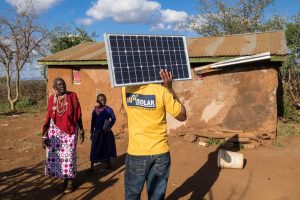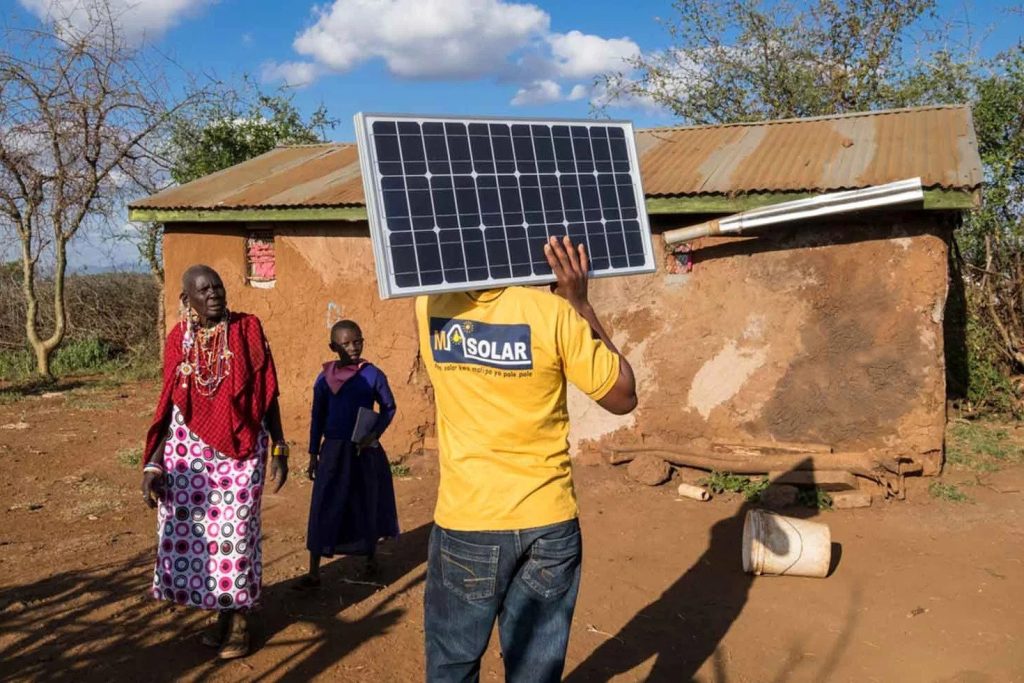Africa’s renewable energy sector holds immense potential for addressing the continent’s energy needs, reducing carbon emissions, and fostering economic development. However, the growth of this sector is impeded by several challenges. This essay explores the key challenges hindering the development of renewable energy in Africa and underscores the importance of involving African youth in the sector.
Challenges Limiting Growth in Africa’s Renewable Energy Sector
Limited Infrastructure: Insufficient infrastructure remains a significant hurdle in the growth of renewable energy in Africa. This includes inadequate grid networks and storage facilities, which hinder the distribution and stability of renewable energy sources like wind and solar.
Financing Constraints: Access to adequate funding is a persistent challenge. Many African countries struggle to secure the financial resources needed to invest in renewable energy projects. This hampers their ability to harness their renewable energy potential fully.
Policy and Regulatory Hurdles: Inconsistent or poorly defined policies and regulations often deter investors and developers from entering the renewable energy market. Legal uncertainties make it difficult for the sector to attract investments and scale up projects.
Technological Gaps: Africa faces technology gaps in manufacturing and maintaining renewable energy equipment. The continent relies heavily on imported technology, leading to increased costs and potential delays in project implementation.

Lack of Skilled Workforce: Africa’s renewable energy sector requires a skilled workforce to develop, operate, and maintain renewable energy infrastructure. However, a shortage of qualified personnel remains a significant impediment.
Involving African Youth in the Renewable Energy Sector
Building a Skilled Workforce: Engaging African youth in the renewable energy sector can help bridge the workforce gap. Governments, NGOs, and businesses should invest in education and training programs to develop a skilled and knowledgeable workforce capable of addressing the sector’s needs.
Entrepreneurship and Innovation: African youth are a source of innovation and fresh ideas. Encouraging entrepreneurship in the renewable energy sector can lead to the development of cost-effective and sustainable solutions tailored to the continent’s unique challenges.
Advocacy and Policy Influence: Youth can be effective advocates for renewable energy. They can influence policy decisions, raise awareness about the sector’s potential, and mobilize support for clean energy initiatives.
Economic Growth and Job Creation: Involving African youth in the renewable energy sector can stimulate economic growth and create jobs. This not only reduces unemployment rates but also contributes to the growth of a green economy.
Sustainability and Climate Action: Engaging the youth in the renewable energy sector aligns with global efforts to combat climate change. Youth involvement can drive the adoption of clean energy practices, reducing the continent’s carbon footprint.
The growth of Africa’s renewable energy sector is essential for achieving sustainable development and addressing energy deficits. However, several challenges, including inadequate infrastructure, financing constraints, and policy hurdles, impede its growth. Engaging African youth in the renewable energy sector is imperative. They can contribute to the sector’s development by filling workforce gaps, driving innovation, advocating for policy changes, stimulating economic growth, and promoting sustainability. By investing in the youth, Africa can unlock the full potential of its renewable energy resources, bringing about a brighter and more sustainable future for the continent.


